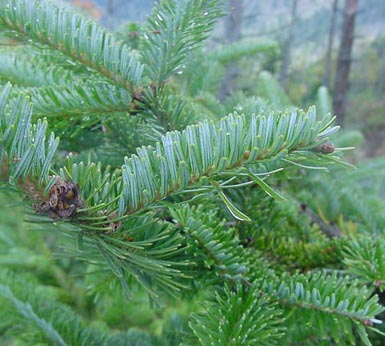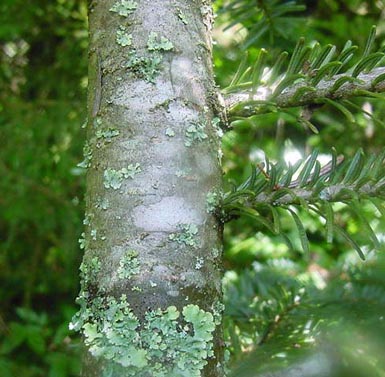Form: This is a small to medium-sized tree ranging in heights from 30-50 ft. It has a narrow cone shaped crown typical of fir species.


Needles:
Arrangement: two ranked (shade), radial, (sun)
Length: 3/4 - 1 2 A long
Shape: flat and blunt-tipped
Other: two silvery lines of stomata below


Bark: It has smooth, dark gray, thin bark when young becoming dark red-brown with age. It also has prominent resinous blisters that are visible on younger stems.

Cones: Erect cones are green to purple in color and have bracts that protrude from the scales.
Distinguishing characteristics: Distinguish this species from balsam fir first by the difference in range, but if you do not have the site to go by look for the bracts along the edges of the cone scales. Balsam fir does not develop the bracts as does Fraser fir.
Range: This species is isolated to the southern Appalachians above 5000 ft.
Silvics: It is very shade tolerant and grows on high mountain ridges and slopes.
Ecological and cultural importance: Several populations have been devastated by balsam wooly adelgid. The seeds are eaten by red squirrels.